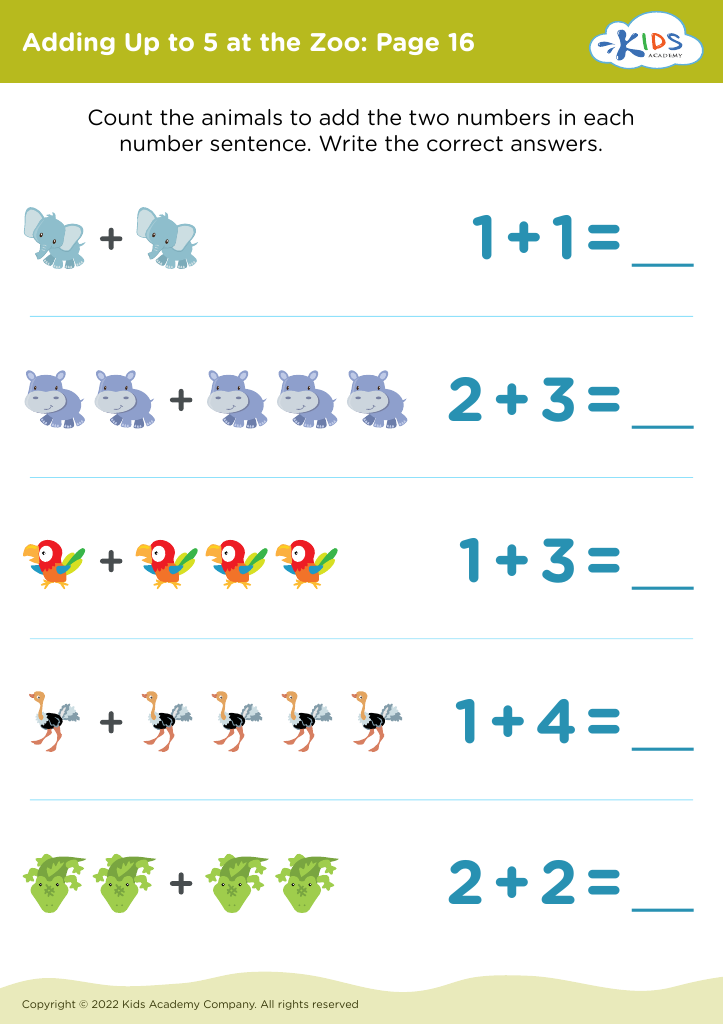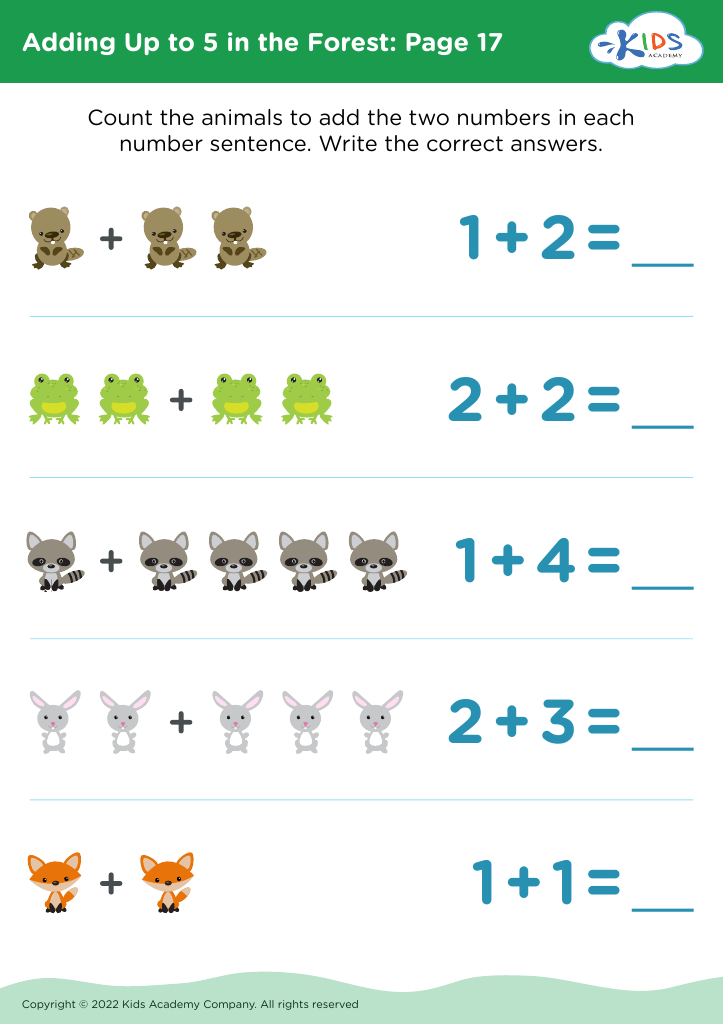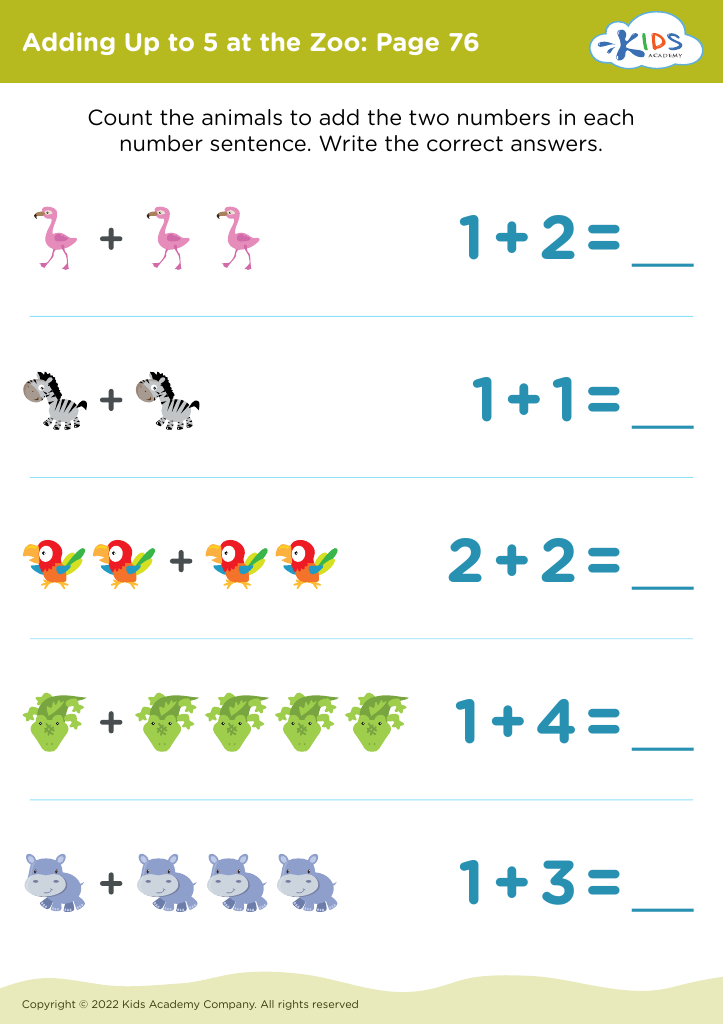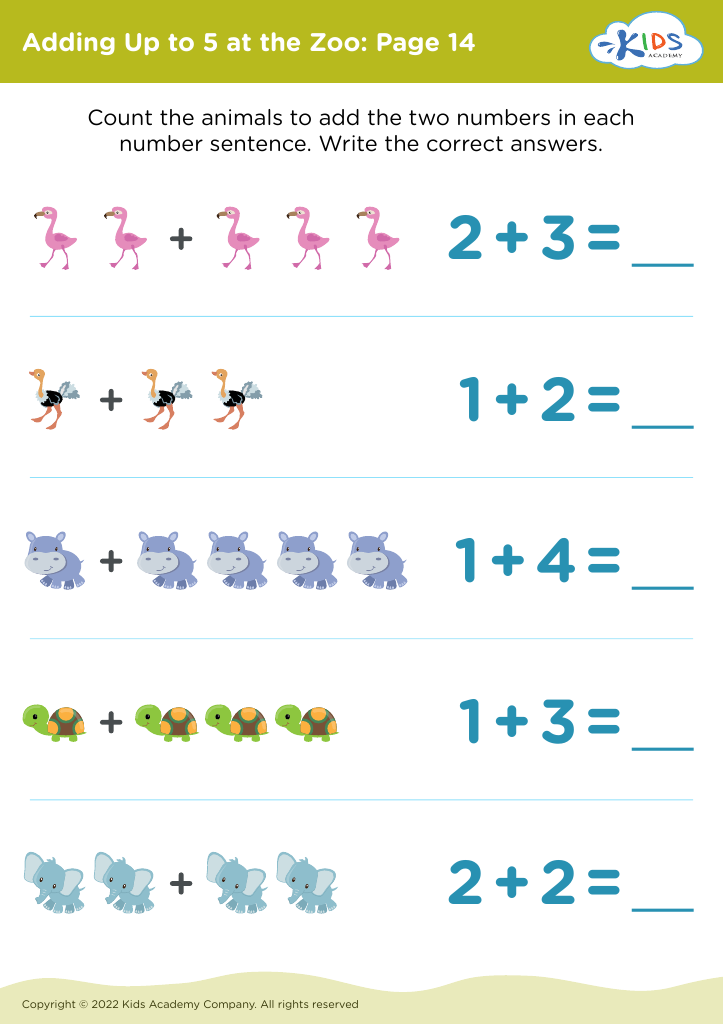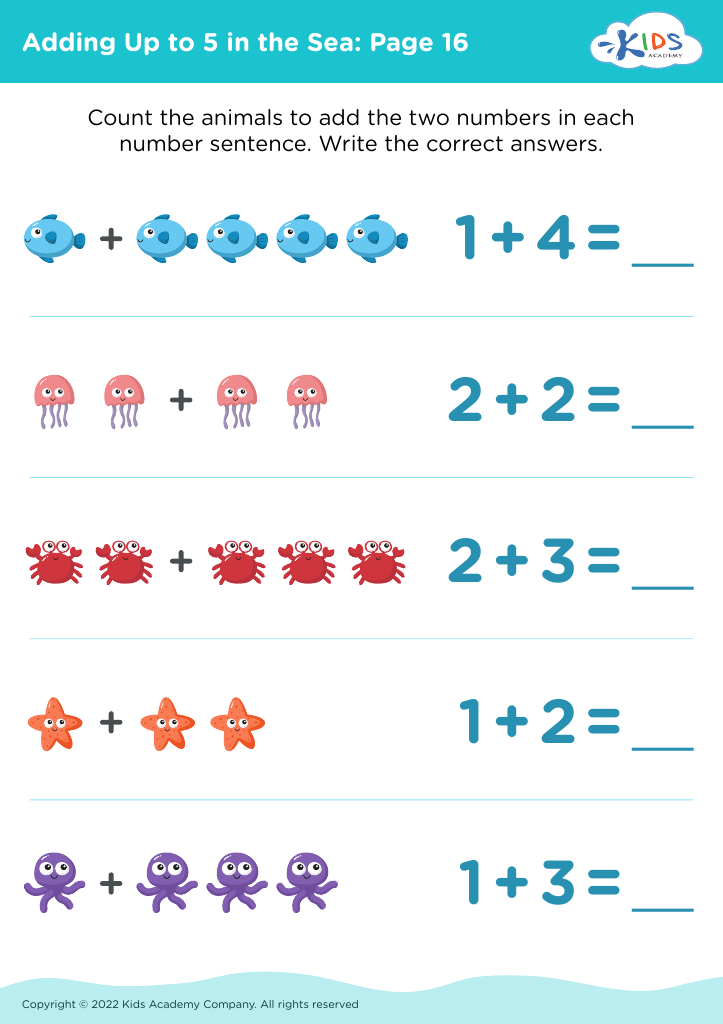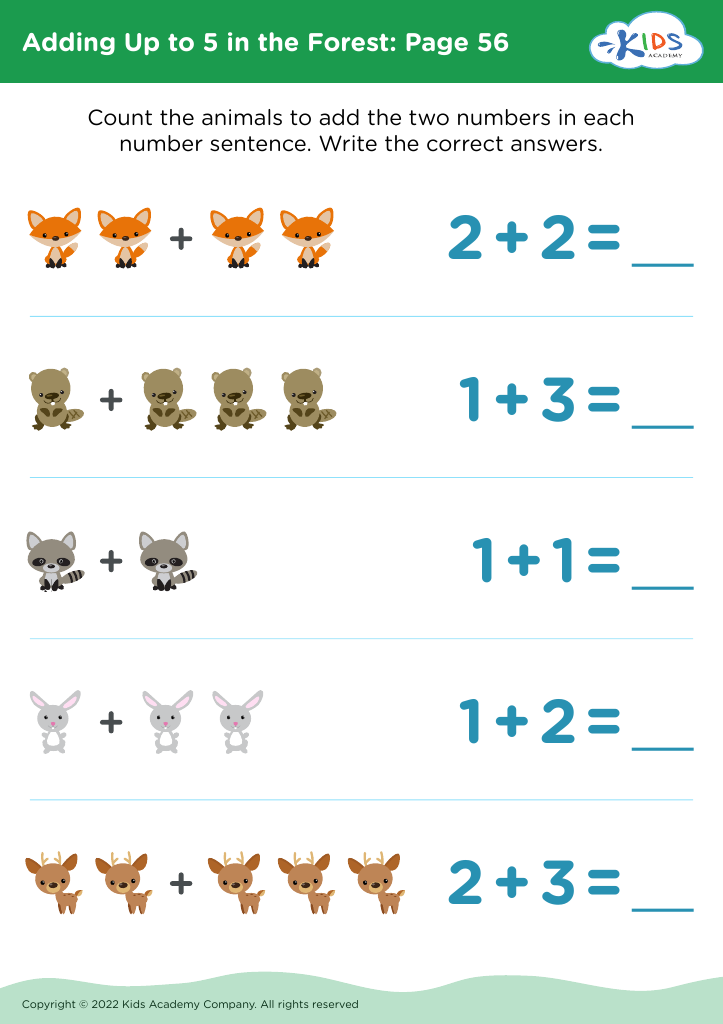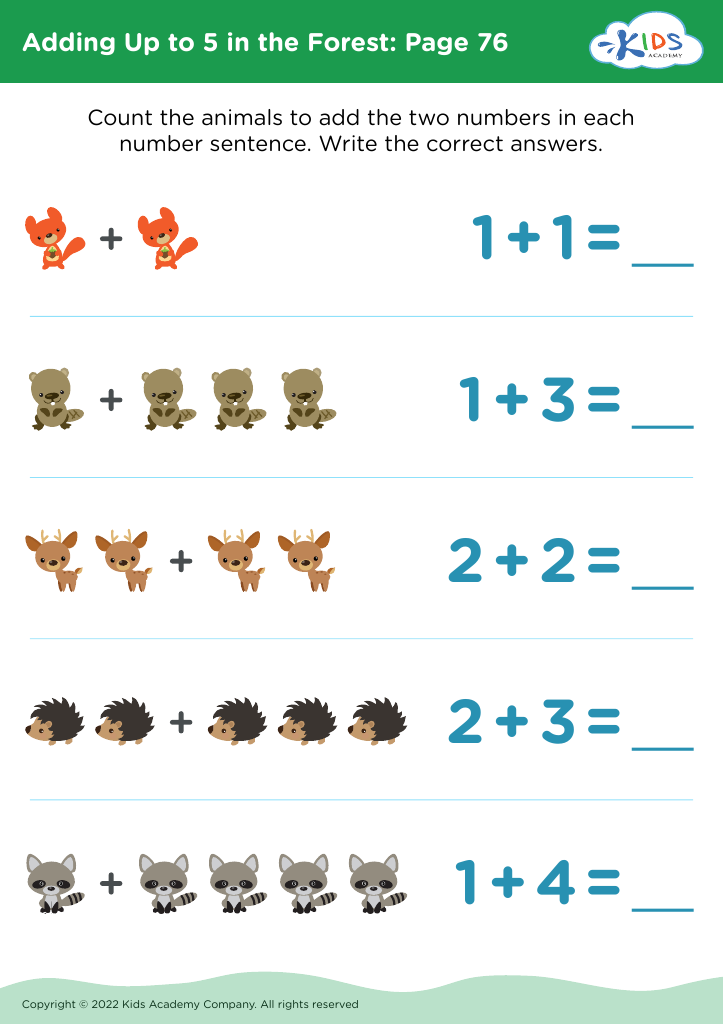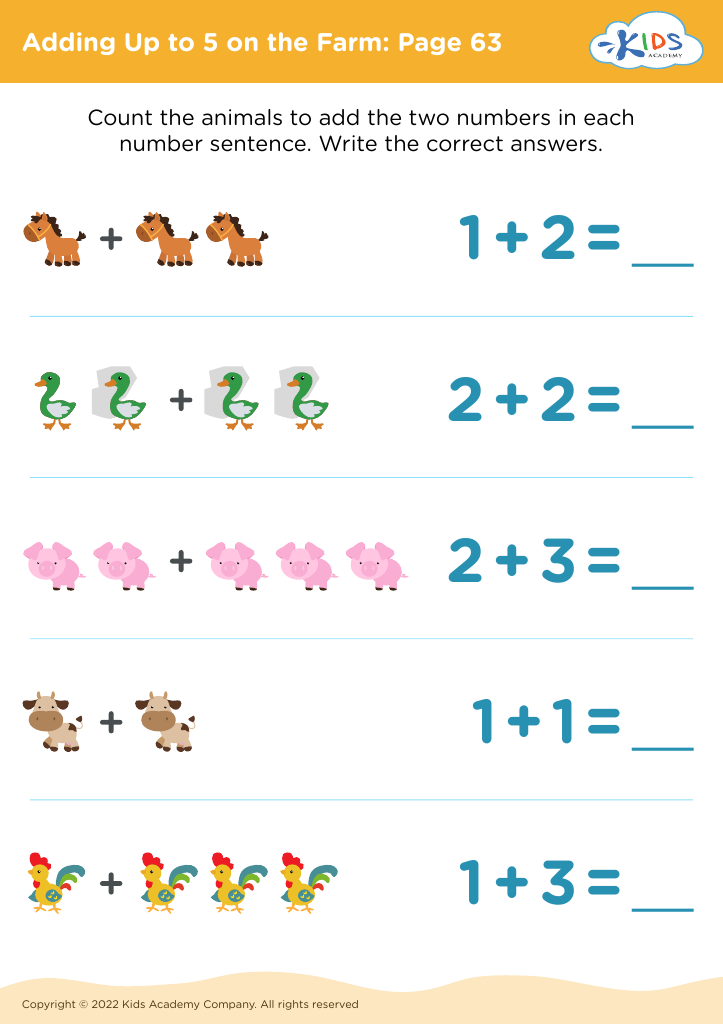Problem Solving Math Worksheets for 3-Year-Olds
15 filtered results
-
From - To
Discover engaging Problem Solving Math Worksheets specially designed for 3-year-olds! Our collection encourages early learners to think critically while developing essential math skills through fun and interactive activities. Each worksheet focuses on problem-solving techniques that foster logical thinking, pattern recognition, and basic numerical concepts. Designed to be age-appropriate, these worksheets promote cognitive development in a playful manner, ensuring that children remain motivated and interested in math. Perfect for use at home or in pre-school settings, these resources will help young minds tackle challenges with confidence. Start your child's math journey today and watch them shine!
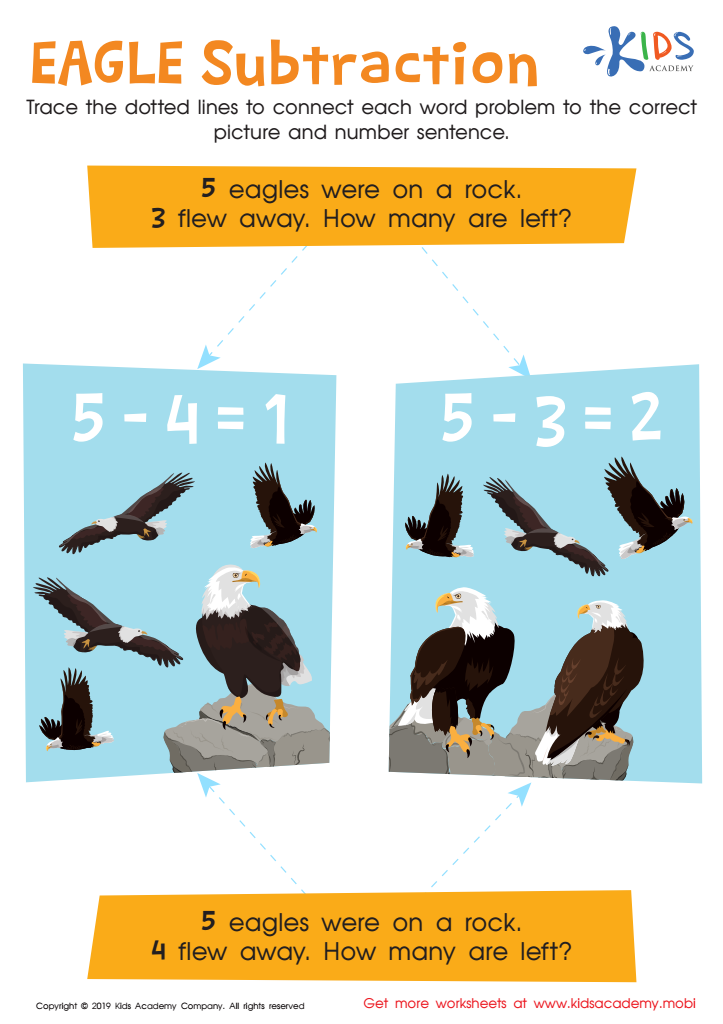

Eagle Subtraction Worksheet
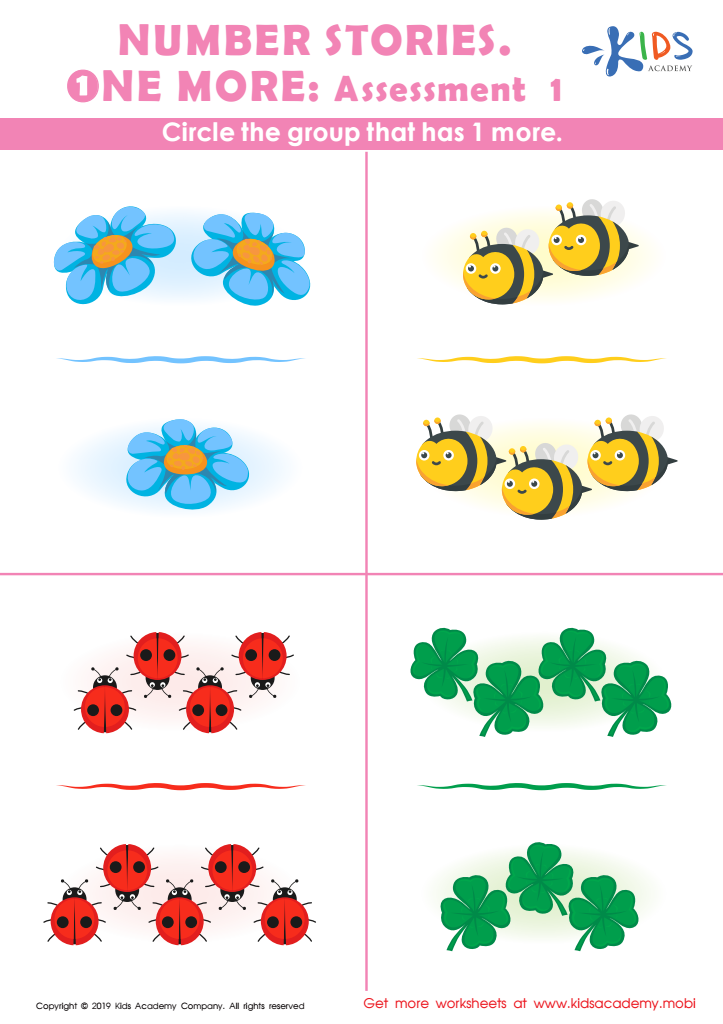

Number Stories One More – Assessment 1 Worksheet
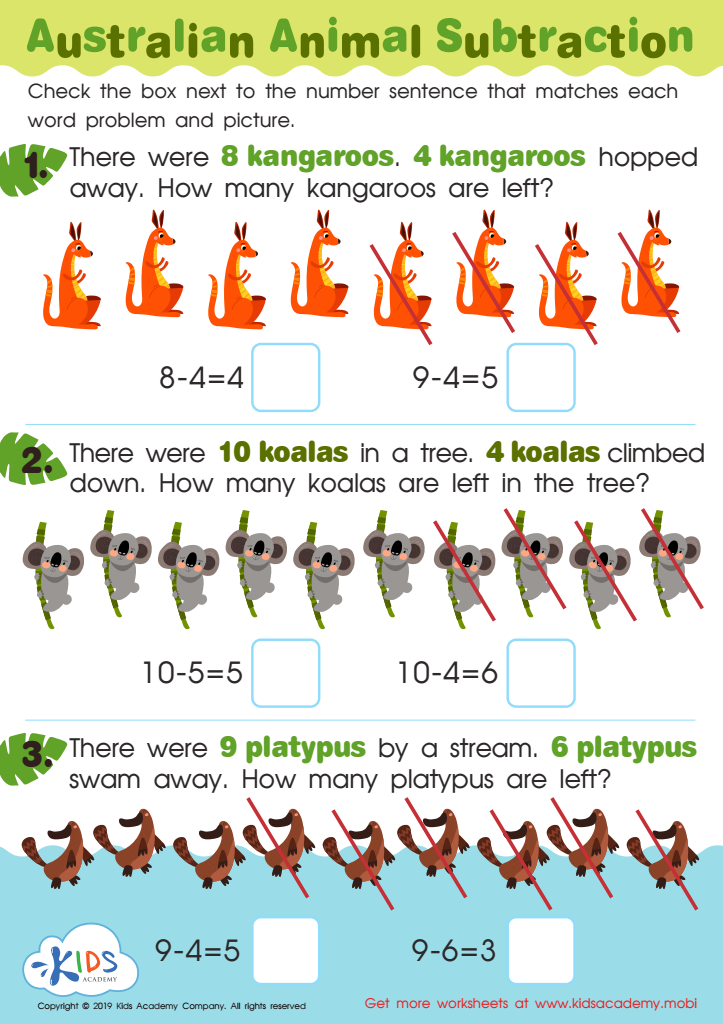

Australian Animal Subtraction Worksheet
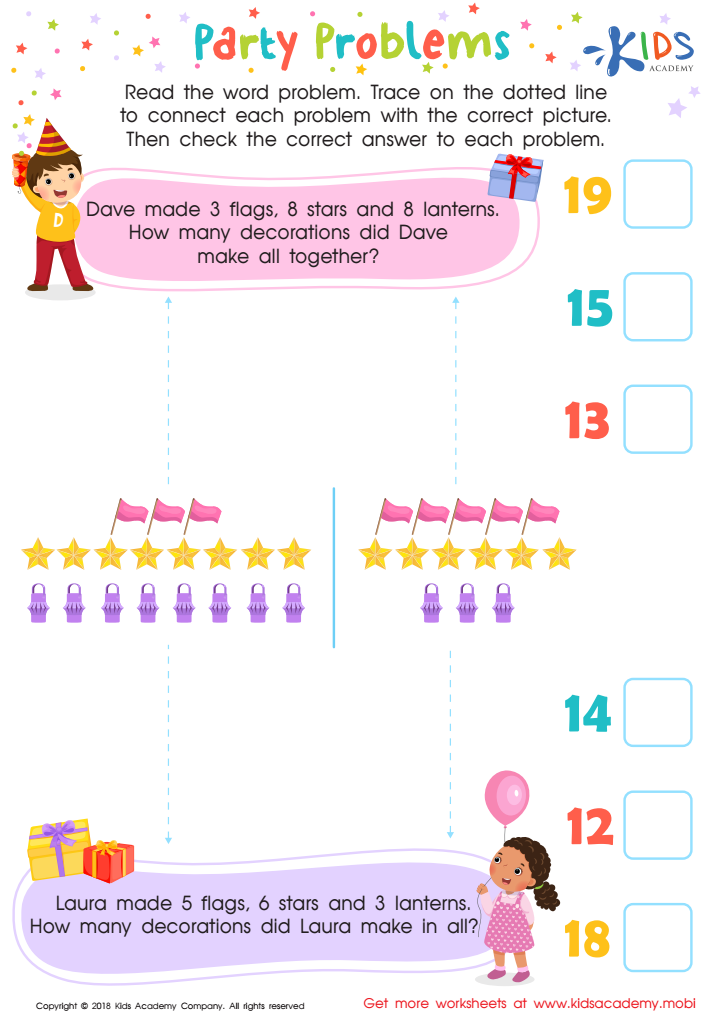

Party Problems Worksheet
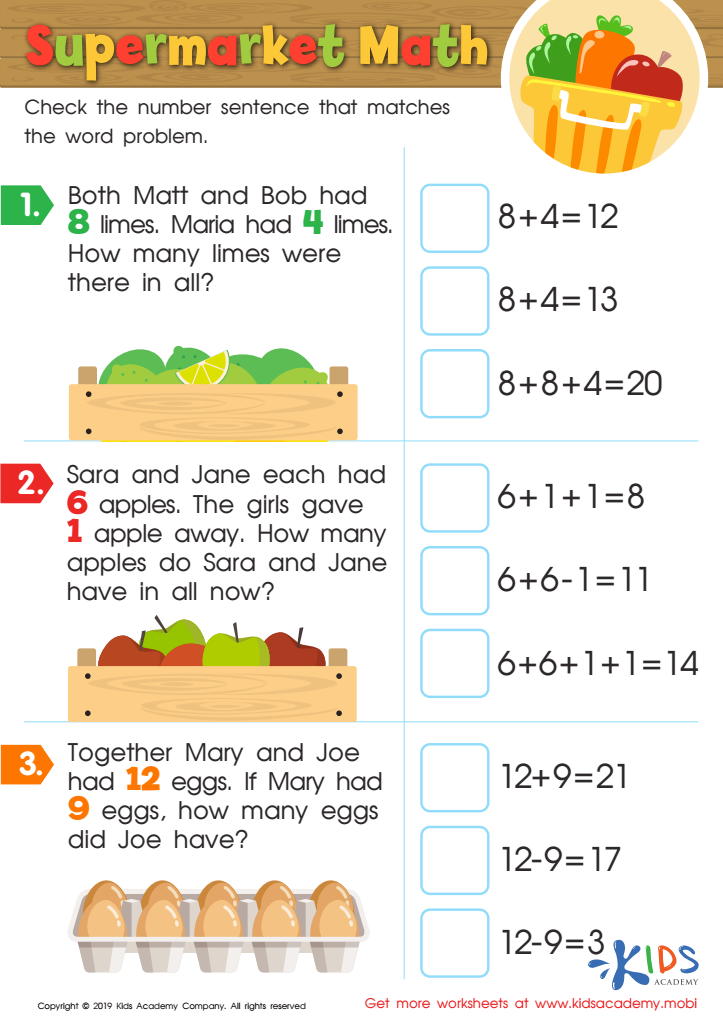

Supermarket Math Worksheet
Parents and teachers should prioritize Problem Solving Math for 3-year-olds because it lays a crucial foundation for early cognitive development and critical thinking skills. At this age, children are naturally curious, constantly exploring their environment through play. Engaging them in problem-solving activities fosters their ability to think logically, recognize patterns, and develop persistence in overcoming challenges.
Mathematical concepts such as counting, sorting, and pattern recognition are seamlessly integrated into everyday activities, like playing with blocks or sharing toys. These interactions promote language development as children learn to express their thoughts and questions. Moreover, early exposure to math helps lower anxiety and build confidence in tackling mathematical concepts in later years, setting the stage for future academic success.
Additionally, problem solving teaches important life skills beyond mathematics. It encourages collaboration, improves communication, and nurtures creativity, all essential for social interactions. Understanding how to approach problems will help children in various areas of learning throughout their educational journey and in real-life situations.
Ultimately, investing time in problem-solving math at this early stage cultivates a love for learning and exploration, making it a crucial focus for parents and educators alike.

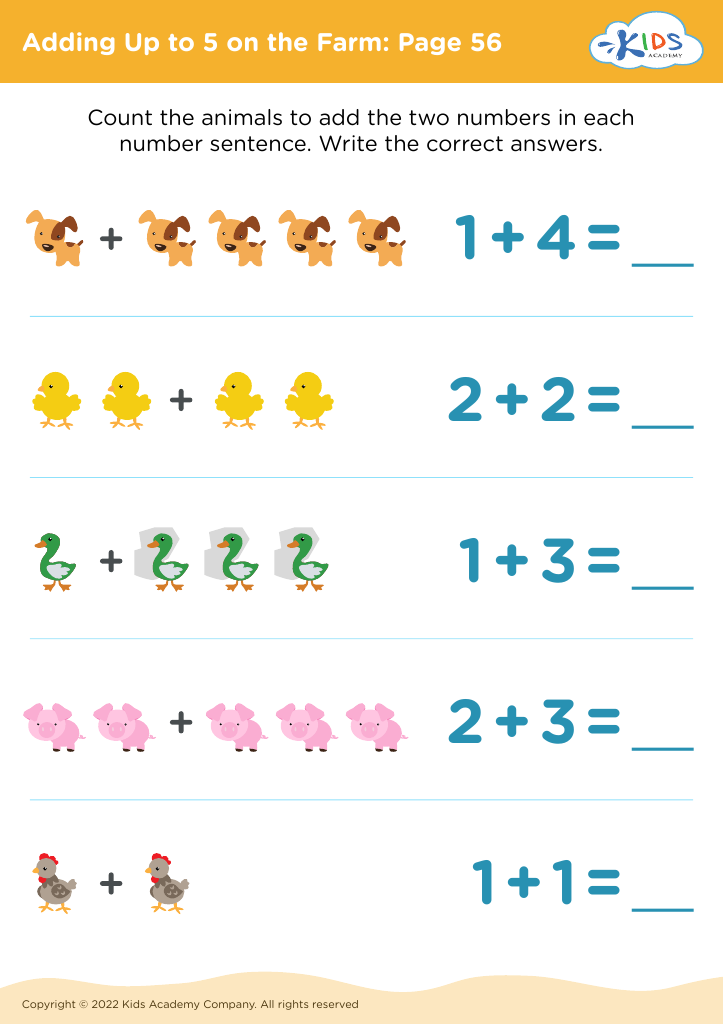
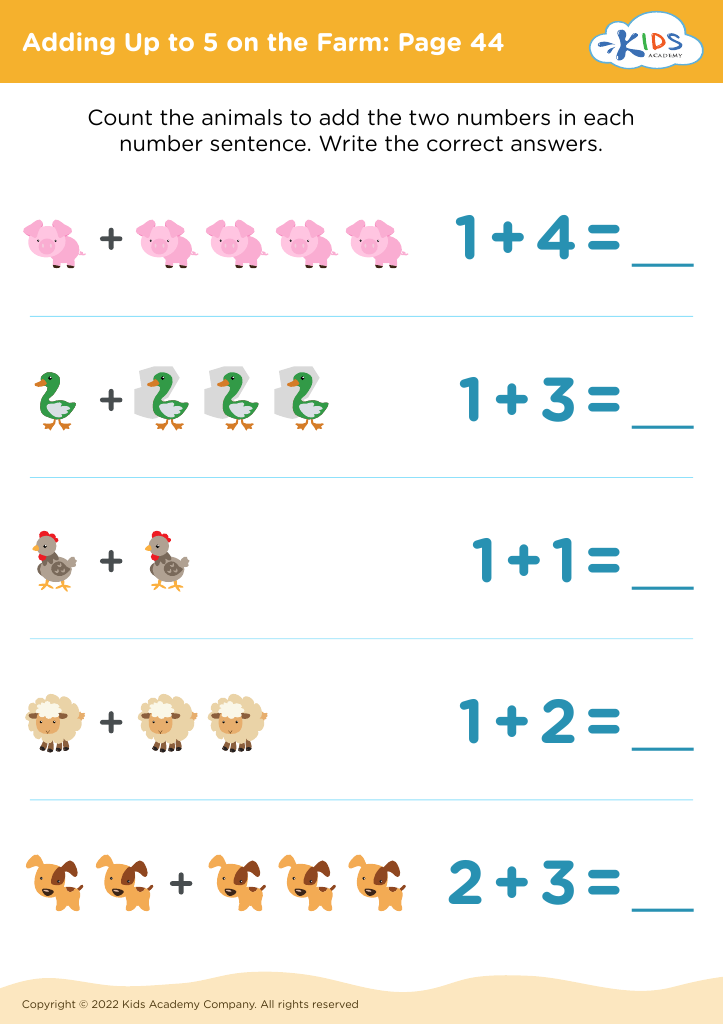
 Assign to My Students
Assign to My Students
